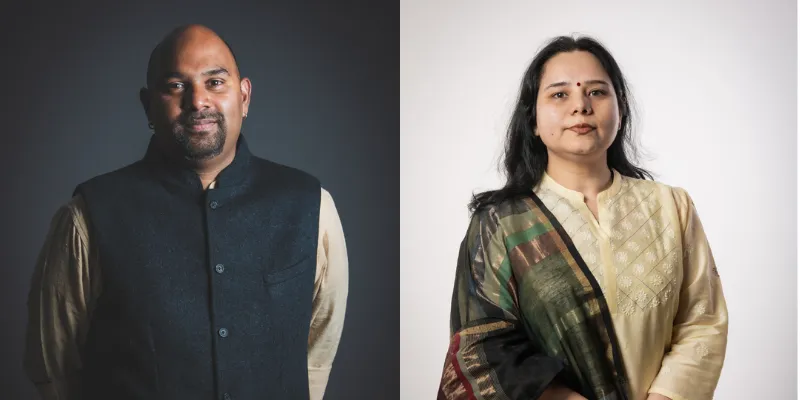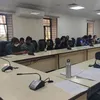Humanity First: How this non-profit is helping 30,000 families cope in the pandemic
Bengaluru-based NGO Bal Utsav is helping over 30,000 underserved families cope with the pandemic, distributing meals, water, and other essentials.
Founded by Ramesh Balasundaram and Binu Verma, Bengaluru-based Bal Utsav is a collective of people who promote social good by focussing on sustainable interventions for children, especially in education.
Its disaster response programme is called Operation Dayitva, which uses technology to understand needs on the ground and deliver critical supplies during times of need.
The NGO has two flagship programmes — Sampoorna Shaala and iShaala – that focus on improving school infrastructure.

Ramesh Balasundaram and Binu Verma
In the past, Bal Utsav’s systems and processes have proven successful during the Nepal earthquakes in 2015, rains, floods in Chennai and Cuddalore 2015, in Kerala 2018, among others.
During the pandemic, which is one of the biggest crises we have ever seen, Bal Utsav channelled its efforts into easing the lives of the most vulnerable sections of society.
In fact, Ramesh says that the NGO’s pandemic efforts have supported over 30,000 families.
Support through the waves
Last March, when the government declared a nationwide lockdown, Bal Utsav began distributig essential stay-at-home kits for those severely affected by the pandemic.
“We recognised that the pandemic will most impact the vulnerable sections of our population and large swathes of India’s children and their families – the vendors, daily wage earners, the gig-economy workers, and small businesses,” says Ramesh.
Bal Utsav distributed stay-at-home food kits, stay-at-home hygiene kits, drinking-water and PPE kits for frontline staff, sanitary napkins for women, and oral rehydration solution for children. The team also cooked food for communities and transferred funds to daily wage workers.
“We are continuing to live through the worst humanitarian crisis ever. And we may not be able to stop it but we can definitely alleviate the distress of many around us,” says Ramesh.
This year, they are doubling down on their efforts to help by also supplying critical medicines and facilitating oxygen concentrators.

Distributing food and hygiene kits to the underserved
Since 2020, the team has distributed over 78,000 food and hygiene kits each, more than 30,000 litres of water, 1.4 crore meals, over 11 lakh sanitary pads, more than 1 lakh ORS packets, handling over 24 tonnes of consignment and helping about 30,000 families.
Bal Utsav receives funds from individuals through domestic and international channels, fundraising campaigns, and from corporates through their CSR.
“As the coronavirus spreads, we are looking at our supporters from all over the world. The starting point is to assemble a coalition of persons and groups willing to take this approach seriously,” says Ramesh.
“We are also seeking financial support from India Inc and Global Funding Sources to establish and operate Bharat Covid Care Centres,” he adds.
An upcoming COVID-care centre
A Bharat Covid Care Centre is planned as a 100-bed centre, which will work as a feeder to an existing hospital.
Existing playgrounds, large parking lots, auditoriums, schools, community centres, and empty grounds will be used to set these up, which can function for the next 90-120 days.
These proposed centres will have all the facilities including ICU beds, oxygen, and the required IT infrastructure to enable telemedicine.

The team members packing rice, wheat and other rations for the kits
“This will address the issue of lack of infrastructure, while various initiatives are currently underway to increase the number of medical personnel,” says Ramesh.
He adds that the teams on the ground have never had to run so fast and work as hard in such unfamiliar environments as in these past 14 months, striving to reach the unreached.
“With the extended lockdown announced in May 2021, we are continuing to live through the worst humanitarian crisis ever. And we may not be able to stop it but we can definitely alleviate the distress of many around us. This crisis has already made history. Our actions now will shape the future,” Ramesh signs off.
Edited by Saheli Sen Gupta








